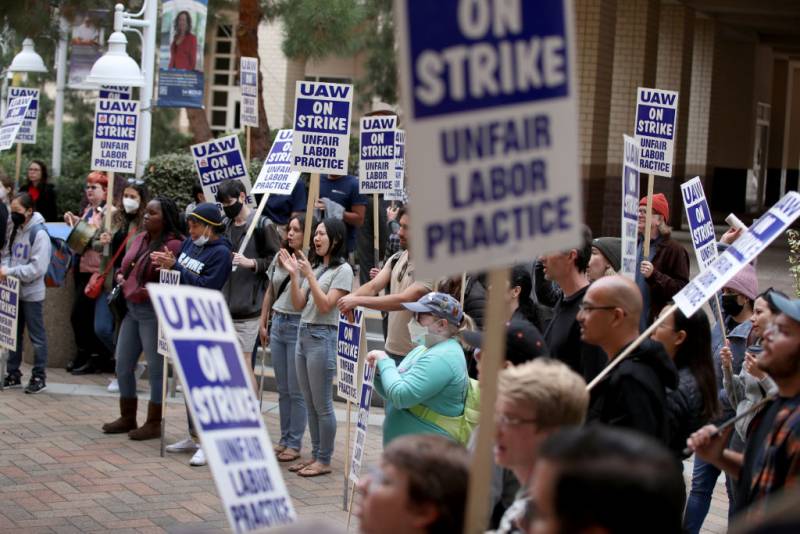The union that represents student academic workers across the University of California system agreed on Friday to neutral third-party mediation to resolve the month-long strike across 10 UC campuses.
The bargaining teams for United Auto Workers 2865 — which represents around 19,000 of the student academic employees — met Friday morning, with a majority voting to enter into voluntary mediation.
“Throughout the bargaining process, UC’s negotiators have consistently been unprepared and unserious, and have broken the law repeatedly. We feel that in order to make progress, it is time for somebody else to step in,” said Tarini Hardikar, a bargaining team member from UC Berkeley, in a media release Friday. "Our goal has always been to make UC a more just, equitable place to work — a place where everyone, not just those with independent or generational wealth, can participate. We look forward to working with a professional mediator to resolve the issues still on the table. Until then, we remain on strike."
In an official statement released Friday, the Office of the President of UC welcomed the UAW's decision to use a mediator.
“The University is pleased that the UAW has agreed to neutral private mediation so that we may resolve our differences and end the strike that has been impacting our students, faculty, and staff,” said Letitia Silas, executive director of systemwide labor relations. “We remain committed to securing a fair and reasonable contract with the union that honors the hard work of our valued graduate student employees. With the help of a neutral mediator, we hope to secure that agreement quickly.”
A month into the nation's largest strike involving higher education, the work stoppage by University of California academic workers at 10 campuses is causing stress for many students who are facing canceled classes, no one to answer their questions and uncertainty about how they will be graded as they wrap up the year.
Some 48,000 student employees walked off the job on Nov. 14 to demand higher wages and better benefits. The employees, represented by the United Auto Workers Local 5810, say they were left with no other choice but to strike to demand increased wages necessary to keep up with high rent in cities such as Berkeley, San Diego and Los Angeles.
Last week, university officials agreed to a 29% pay hike for postdoctoral employees and academic researchers who make up about 12,000 of the 48,000 workers. The university system also agreed to provide more family leave time, child care subsidies and job security.
